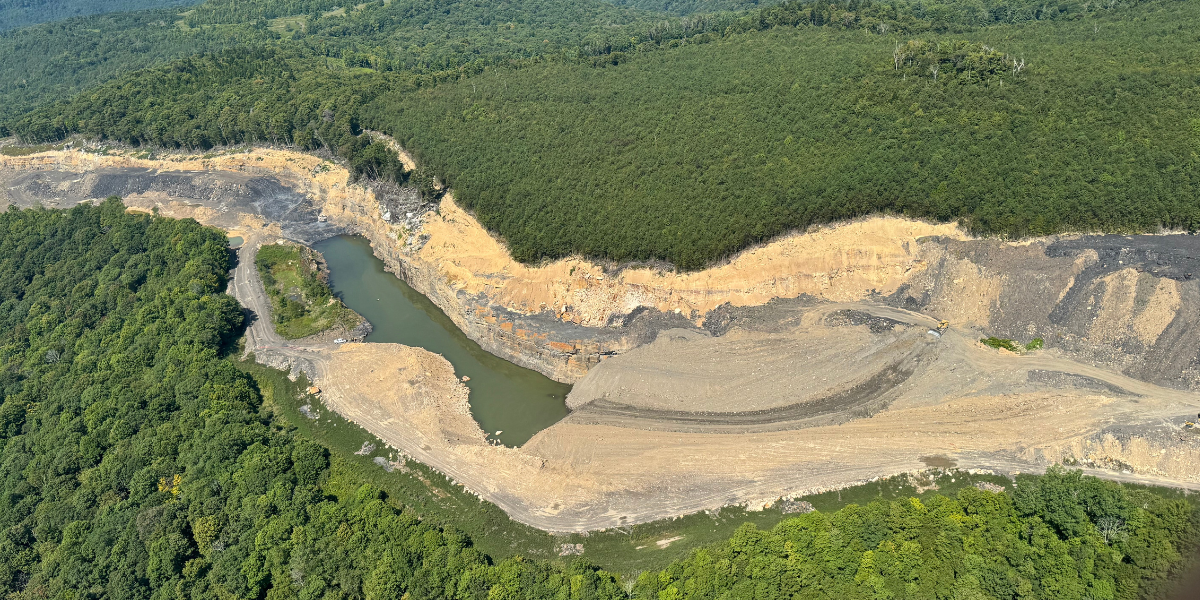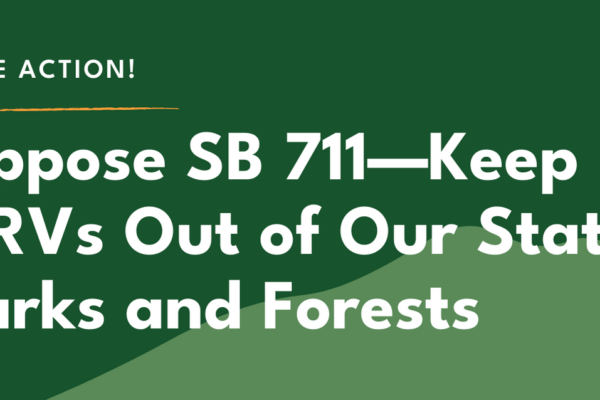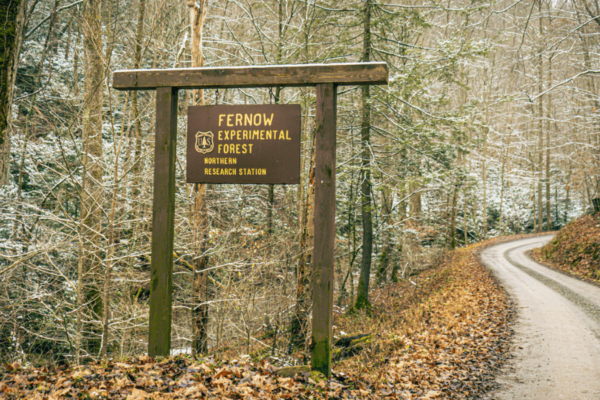Rocky Run Surface Mine in Greenbrier County, West Virginia. Photo courtesy of Allegheny-Blue Ridge Alliance
FOR IMMEDIATE RELEASE
February 18, 2025
CONTACT
Olivia Miller, Program Director, West Virginia Highlands Conservancy, (304) 704-2997, olivia.miller@wvhighlands.org
Andrew Young, Staff Attorney, Allegheny-Blue Ridge Alliance, (434) 202-4397, ayoung@abralliance.org
Dan Radmacher, Media Specialist, Appalachian Voices, (276) 289-1018, dan@appvoices.org
RICHWOOD, W.Va. — On Feb. 7, 2025, South Fork Coal Company and its parent entities Xinergy and White Forest Resources, filed for Chapter 11 bankruptcy in Delaware. The move follows the company’s well-documented pattern of water pollution and mine clean-up violations, which have drawn mounting public scrutiny and legal actions. In January, the Office of Surface Mining Reclamation and Enforcement issued a cessation order, shutting down a haul road and associated coal removal at the Rocky Run Surface Mine for 11 days. The company’s mines are also implicated in three lawsuits brought by community and conservation organizations over a long list of environmental violations.
The bankruptcy results in a stay of a lawsuit brought by West Virginia Highlands Conservancy and Appalachian Voices over dozens of incidents of water pollution and violations of reclamation standards at South Fork Coal’s mines in the Cherry River headwaters of Greenbrier County, just upstream of the community of Richwood.
For coal companies, bankruptcy is often a calculated maneuver by out-of-state investors to separate profitable assets from the burdens of environmental liabilities and obligations to workers. This corporate maneuver is part of a longstanding pattern of wealthy outsiders exploiting West Virginia’s people and resources for personal gain. In doing so, out-of-state investors aim to shed their responsibilities to West Virginia’s people and land while preserving the more lucrative parts of the enterprise.
South Fork Coal Company operates on more than 4,000 acres at the headwaters of the Cherry River in Nicholas, Greenbrier, and Pocahontas counties — a major tributary of the Gauley River and a world-class recreation destination. Their strip mines lie just six miles from the Cranberry Glades Wilderness Area, West Virginia’s largest wilderness and two miles from the Falls of Hills Creek Scenic Area.
Statement by Willie Dodson, coal impacts program coordinator for Appalachian Voices:
“South Fork Coal Company violated the Clean Water Act at least 82 times since 2020, according to the company’s own data. By declaring bankruptcy, the company has effectively shielded itself, for now, from our lawsuit seeking to enforce these violations. The West Virginia Department of Environmental Protection, on the other hand, retains full authority to force this company to comply with environmental laws, and to shut down their operations if they fail to do so. Appalachian Voices will continue to monitor these mines and educate our members and community partners about South Fork Coal’s impacts on the Cherry River. In the meanwhile, the DEP must be relentless in monitoring this company’s operations, enforcing the law and protecting the pristine Cherry/Gauley River headwaters where South Fork Coal Company wants to keep mining, even though it is bankrupt.”
Statement by Andrew Young, staff attorney for the Allegheny-Blue Ridge Alliance:
“We are at the forefront of a new chapter in a long class war — a fight for justice, dignity and the future of our communities. This bankruptcy filing is emblematic of our ongoing struggle to ensure West Virginia is governed by fairness and accountability, not by corporate greed. South Fork Coal’s Chapter 11 filing is yet more evidence that the coal industry in West Virginia is unsustainable. A common maneuver here is to split the business into a ‘good’ side, safeguarding profitable assets for wealthy out-of-state investors, and a ‘bad’ side, saddling West Virginians with toxic liabilities and abandoned promises. If that happens here, it will be the latest blow in this age-old struggle, where billionaires and outside financiers exploit the land, the people and their labor — then cut and run when called to account.”
Statement by Olivia Miller, program director for the West Virginia Highlands Conservancy:
“Coal companies have long disrespected the people and the land of West Virginia, doing everything they can to avoid taking responsibility for the damage they’ve done. And what’s even worse is how our so-called leaders in this state continue to worship at these companies’ feet instead of boldly taking on the challenge of creating a new and better future. This is just the latest chapter in a long, shameful legacy of wealthy outsiders draining Appalachia dry, then using bankruptcy as a shield from liability. For decades, shareholders have pocketed massive profits while leaving behind polluted rivers, struggling communities, bereaved families and fractured local economies. Real prosperity doesn’t come from extraction and abandonment; it comes from building an economy that values West Virginian’s well-being, our environment and the resilience of local communities. Together, we can and will forge a future that values people and places over profits.”
Statement by Tyler Cannon, board member for the West Virginia Highlands Conservancy
“With bankruptcy on the horizon, a window is opening for us to speak out about what we need this watershed to look like for future generations. When companies like South Fork Coal Company or their shadowy investors pull out of here, it’s West Virginians that are left behind with the company’s mess. Those same investors can restructure, pick a new name, and continue with the same practices that caused this business to fail. Where is the justice in that? True prosperity and job creation in West Virginia can’t be built on a foundation of pollution, worker exploitation, black lung, and abandoned promises. As corporate leaders attempt to shield themselves from the consequences of their choices, we call on everyone — workers, residents, and elected officials — to stand together. We can and must create a future that uplifts communities, safeguards the environment and ends the cycle of extraction that has long defined the Appalachian coalfields.”



